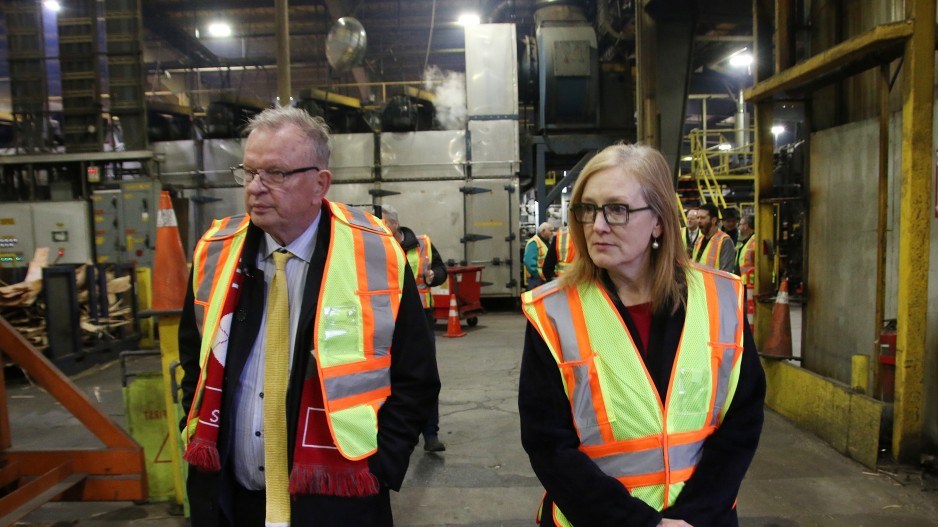Wood manufacturers in B .C. that have little or no Crown tenure will get increased access to logs through BC Timber Sales.
B.C. Forests Minister Bruce Ralston Tuesday announced a new program – the BC Timber Sales (BCTS) Value-Added Manufacturing Program – that will set aside 10 per cent of BC Timber sales for qualifying businesses.
It will not be open to conventional lumber producers. Only higher value-added manufacturers will qualify. That includes veneer and plywood, engineered wood products, shakes and shingles, log home manufacturing, decking and flooring.
The announcement was made Tuesday at Coastland Industries Ltd., which makes veneer in Nanaimo, and has a veneer drying plant on Annacis Island.
Veneer is made from thin layers of wood peeled from logs and glued onto core panels. Plywood is one of the products made from veneer.
In addition to veneer, the company also sells peeled cores to niche markets for things like fence posts, vineyard and orchard stakes. The company employs 280 people.
The company has no tenure of its own, so it is one of the companies that will qualify for dedicated access to logs through BC Timber sales.
B.C. faces a long-term decline in its annual allowable cut (AAC), due largely to a massive Mountain pine beetle infestation that started in the late 1990s. The declining AAC has resulted in a number of sawmill and pulp and paper mill closures in the last couple of years.
Ralston reiterated an oft-heard refrain that B.C.'s forest industries will need to do “more with less.”
“Our government’s vision for forestry is to build a stronger, more resilient industry through value-added manufacturing,” Ralston said. “The reality is we need to do more with less, and that means manufacturing more innovative wood products right here in British Columbia and creating more jobs from every tree harvested.”
Ralston noted that five large forestry companies in B.C. own 50 per cent of the Crown tenure.
“It makes it difficult for new, innovative and value-added companies to get into the market,” Ralston said.
Ralston said the new program will start with 10% of BC Timber Sales, but that it’s expected that will eventually expand.
“There is going to be significant investment in high value wood manufacturing in the coming decade all around the world,” said Jake Power, president of PowerWood, which makes customized cedar products.
“Construction is trending around these greener alternatives. I believe in B.C. that shift can happen here.”



